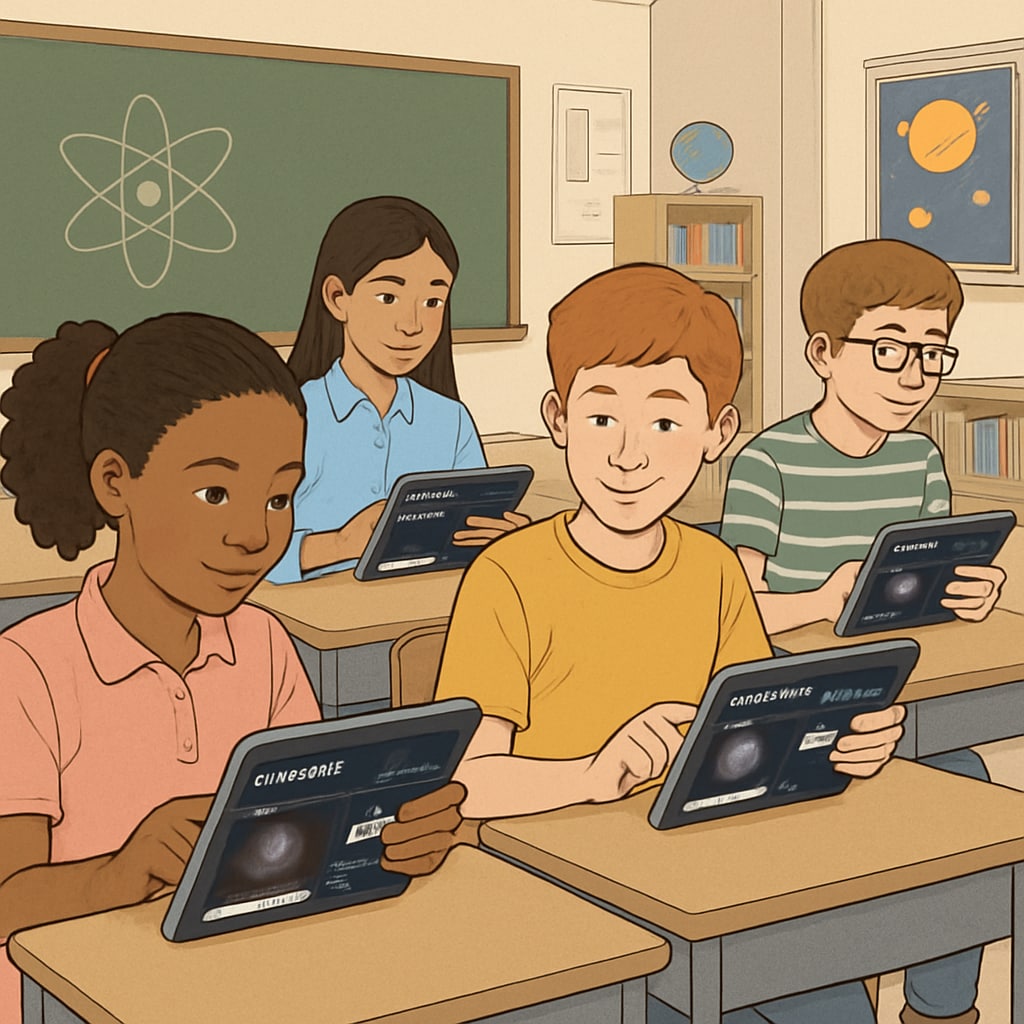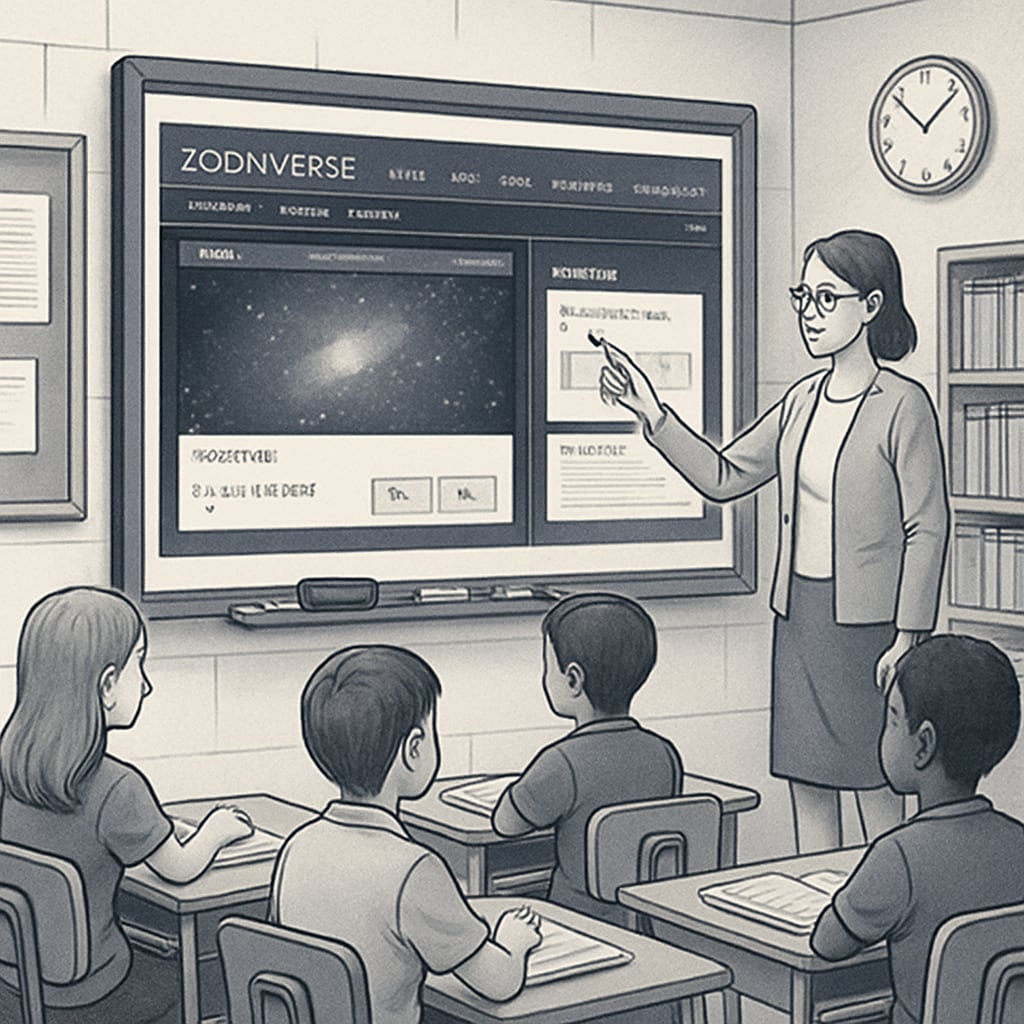Citizen science projects, like those offered on the Zooniverse platform, provide a unique opportunity for K12 students to engage in real-world scientific research. By participating in these projects, students not only develop critical scientific skills but also gain exposure to interdisciplinary knowledge and the genuine excitement of discovery. This hands-on approach to learning prepares them for future scientific endeavors while fostering a lifelong appreciation for exploration and inquiry.
What Is Zooniverse and How Does It Work?
Zooniverse is one of the largest platforms for citizen science, connecting volunteers with researchers in need of assistance with data collection and analysis. From identifying galaxies in deep space to transcribing historical documents, the platform offers a wide variety of projects suitable for all ages. For K12 educators, Zooniverse presents an adaptable tool to integrate authentic research experiences into the curriculum.
The platform is user-friendly, requiring no prior expertise. All students need is an internet connection and curiosity. With step-by-step tutorials and clear instructions, even beginners can contribute meaningfully to scientific studies. As a result, students feel empowered knowing their work supports real-world research.

Why Citizen Science Matters in K12 Education
Incorporating citizen science into K12 education offers numerous benefits:
- Real-World Application: Students work on genuine scientific problems, bridging the gap between theoretical learning and practical application.
- Critical Thinking: Projects often require students to analyze data, recognize patterns, and draw conclusions, enhancing their critical thinking skills.
- Interdisciplinary Learning: Many Zooniverse projects integrate topics from multiple disciplines, such as biology, astronomy, and history, providing a holistic learning experience.
- Global Impact: By contributing to significant research, students feel a sense of purpose and connection to global scientific communities.
For example, a project like “Galaxy Zoo” allows students to classify galaxies, while “Penguin Watch” involves monitoring penguin populations in the Antarctic. These activities not only teach science but also instill a sense of responsibility toward environmental and societal issues.
Integrating Zooniverse into the Classroom
Bringing Zooniverse into the classroom is easier than you might think. Here are some strategies for successful integration:
- Choose Age-Appropriate Projects: Select projects that align with the students’ academic levels and interests. For younger students, simpler tasks like identifying animal species might be ideal.
- Create a Collaborative Environment: Encourage teamwork by assigning students to small groups. This fosters peer learning and enhances communication skills.
- Link to Curriculum Goals: Align the project with specific learning objectives, such as understanding ecosystems or practicing data analysis.
- Reflect and Discuss: After completing the project, engage students in discussions about their findings and the broader implications of their work.
In addition, educators can use Zooniverse as a springboard for deeper scientific inquiry. For example, students can design their own experiments or research projects inspired by their Zooniverse experience.

Inspiring the Next Generation of Scientists
Citizen science through platforms like Zooniverse does more than just educate—it inspires. By participating in these projects, students develop a sense of curiosity and a passion for learning that extends beyond the classroom. They see themselves as contributors to a larger scientific mission, which can spark interest in STEM (Science, Technology, Engineering, and Mathematics) careers.
In a world increasingly driven by data and innovation, equipping young learners with the skills and mindset of a scientist is more critical than ever. Zooniverse provides a stepping stone for students to explore the wonders of science and their potential role in shaping the future.
In conclusion, integrating Zooniverse into K12 education empowers students to experience the thrill of real-world research. It fosters critical thinking, interdisciplinary learning, and a global perspective—essential qualities for the scientists and innovators of tomorrow.
Readability guidance: This article uses concise paragraphs, bullet points, and lists to summarize key points. The language is designed for accessibility, while maintaining a professional tone.


